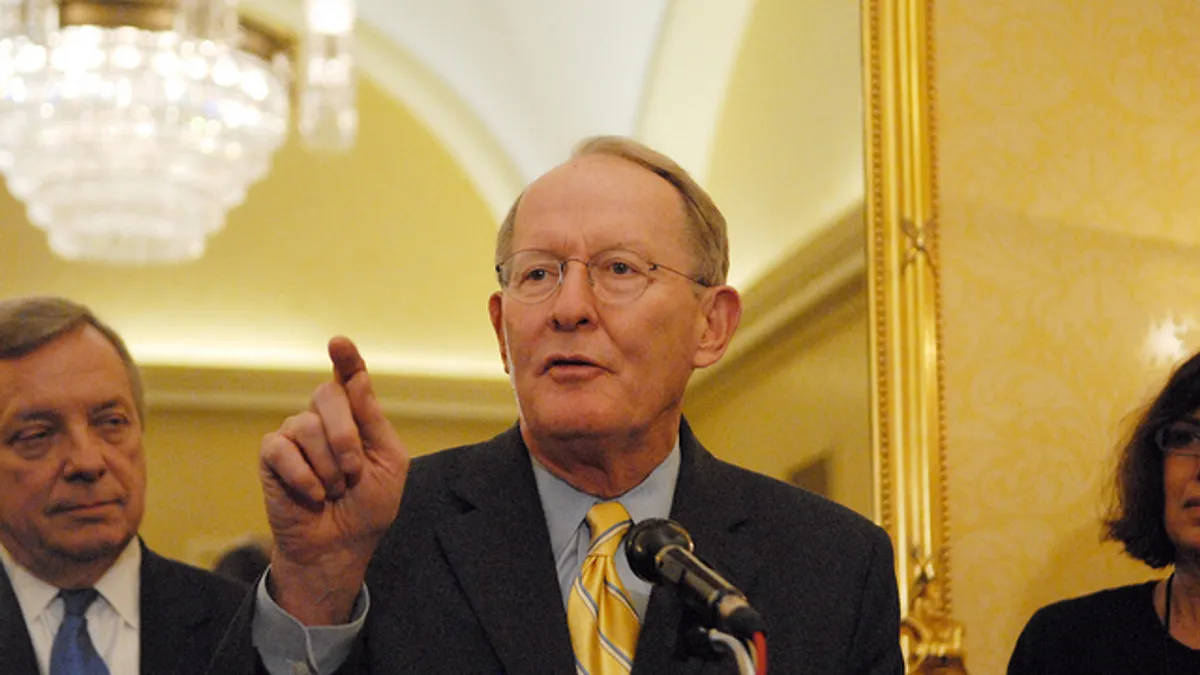Dive Brief:
- Sen. Lamar Alexander (R-Tenn.), chairman of the Senate Health, Education, Labor and Pensions Committee since 2015, announced Monday that he won't seek re-election in 2020.
- Alexander, who co-authored the 2015 Every Student Succeeds Act (ESSA) and had a hand in several other education policies, has a long history in education, serving as President George H.W. Bush's education secretary from 1991 to 1993. Before getting elected to the U.S. Senate in 2002, Alexander was also the governor of Tennessee from 1979 to 1986 and served as the University of Tennessee's president.
- “I have gotten up every day thinking that I could help make our state and country a little better, and gone to bed most nights thinking that I have," Alexander wrote in a statement. "I will continue to serve with that same spirit during the remaining two years of my term.”
Dive Insight:
Alexander's many years in office are bound to leave a lasting legacy for both K-12 and higher ed. He's largely unmatched in his experience and reputation as a fierce advocate and leader in addressing education issues.
The Republican senator's biggest legislative accomplishment in office was ESSA, a major federal policy that replaced the No Child Left Behind Act. In working on the legislation, Alexander wanted states to have bigger roles in overseeing testing, turnarounds and holding schools accountable.
Aside from pioneering ESSA, Alexander was a major figure in passing the Carl D. Perkins Career and Technical Education Act, which received almost unanimous support and aims to help students get the skills they need to enter the workforce. He also played a part in the rewriting of Head Start in 2008, as well as the 2014 Child Care and Development Block Grant Act, which looked to improve the quality of child-care centers.
On the higher ed front, Alexander's experience as a college president likely played a role in his dedication to college issues. Last year, he helped restore year-round Pell Grants, and he's worked to scrap the Free Application for Federal Student Aid (FAFSA). Alexander has also expressed interest in reauthorizing the Higher Education Act — a 1965 law that guides most of the entire higher ed space — but earlier this year, he was unsuccessful in corralling Republicans and Democrats to produce a bill.
Alexander is commonly referred to as a bipartisan dealmaker, but his decisions in the education sector haven't all garnered the support of both sides of the aisle. The contentious confirmation of U.S. Secretary of Education Betsy DeVos came down to the wire, with Vice President Mike Pence stepping in to cast a tie-breaking vote in her favor. Alexander opposed Democrats' wishes for more hearings to look into DeVos' record, and his support helped get her into office.
With Alexander's retirement, a few policies have an uncertain future. He could choose to pursue an update of child abuse prevention laws or refresh special education legislation. But one of the biggest items on his checklist, higher ed reform, has a murkier future. The senator has said he wanted to move quickly on the policy, but his approaching end date in office could mean an even more rushed process to get it done — or an inability to do so.












